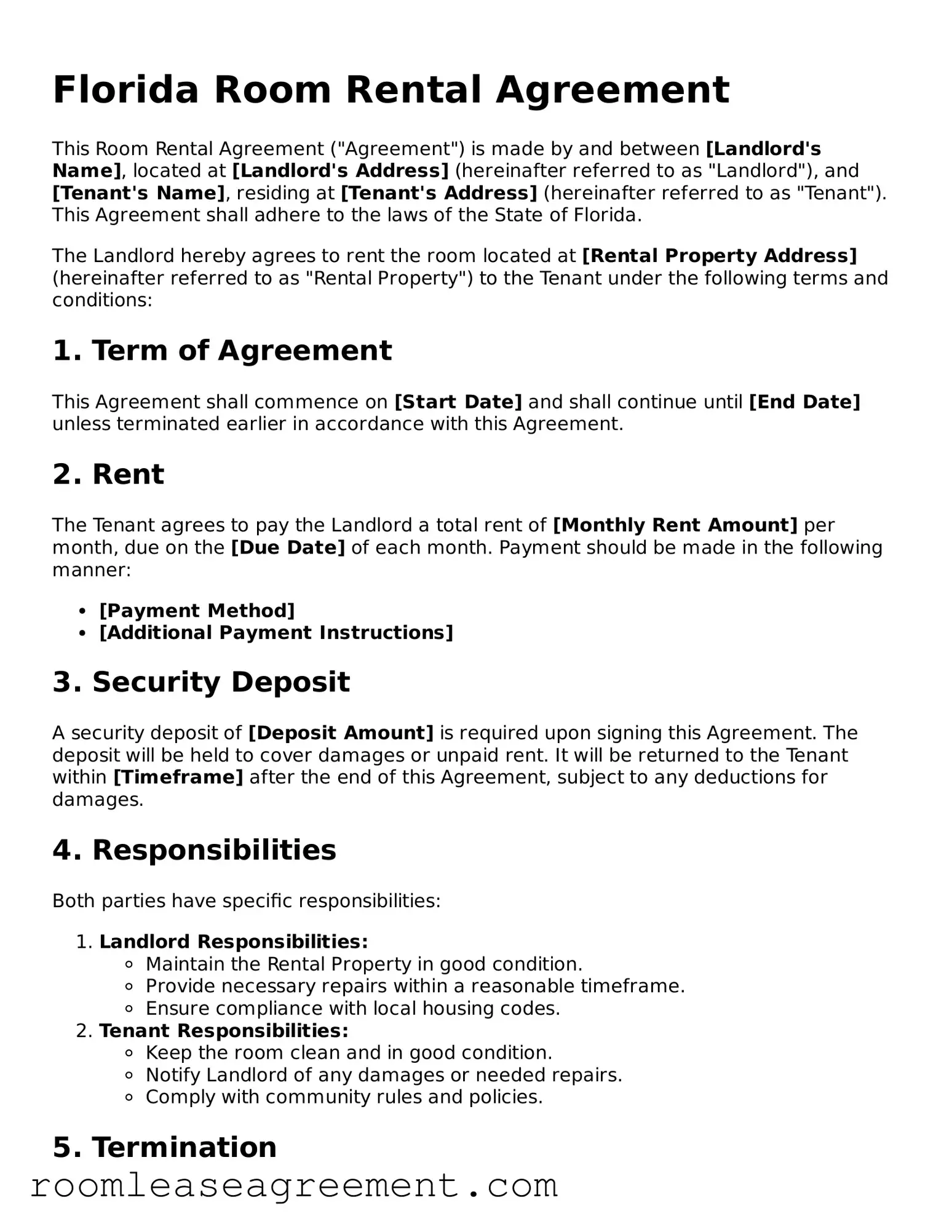Florida Room Rental Agreement
This Room Rental Agreement ("Agreement") is made by and between [Landlord's Name], located at [Landlord's Address] (hereinafter referred to as "Landlord"), and [Tenant's Name], residing at [Tenant's Address] (hereinafter referred to as "Tenant"). This Agreement shall adhere to the laws of the State of Florida.
The Landlord hereby agrees to rent the room located at [Rental Property Address] (hereinafter referred to as "Rental Property") to the Tenant under the following terms and conditions:
1. Term of Agreement
This Agreement shall commence on [Start Date] and shall continue until [End Date] unless terminated earlier in accordance with this Agreement.
2. Rent
The Tenant agrees to pay the Landlord a total rent of [Monthly Rent Amount] per month, due on the [Due Date] of each month. Payment should be made in the following manner:
- [Payment Method]
- [Additional Payment Instructions]
3. Security Deposit
A security deposit of [Deposit Amount] is required upon signing this Agreement. The deposit will be held to cover damages or unpaid rent. It will be returned to the Tenant within [Timeframe] after the end of this Agreement, subject to any deductions for damages.
4. Responsibilities
Both parties have specific responsibilities:
- Landlord Responsibilities:
- Maintain the Rental Property in good condition.
- Provide necessary repairs within a reasonable timeframe.
- Ensure compliance with local housing codes.
- Tenant Responsibilities:
- Keep the room clean and in good condition.
- Notify Landlord of any damages or needed repairs.
- Comply with community rules and policies.
5. Termination
Either party may terminate this Agreement by providing written notice of [Notice Period] to the other party. Termination can occur for reasons including failure to pay rent or violation of any terms listed in this Agreement.
6. Governing Law
This Agreement shall be governed by and construed in accordance with the laws of the State of Florida.
7. Signatures
By signing below, both parties acknowledge that they agree to the terms outlined in this Agreement.
Landlord Signature: ___________________________ Date: ________________
Tenant Signature: ___________________________ Date: ________________
This template provides a clear and straightforward structure for establishing a room rental agreement in Florida. Each section addresses important elements that tenants and landlords need to consider, ensuring both parties understand their rights and obligations.
